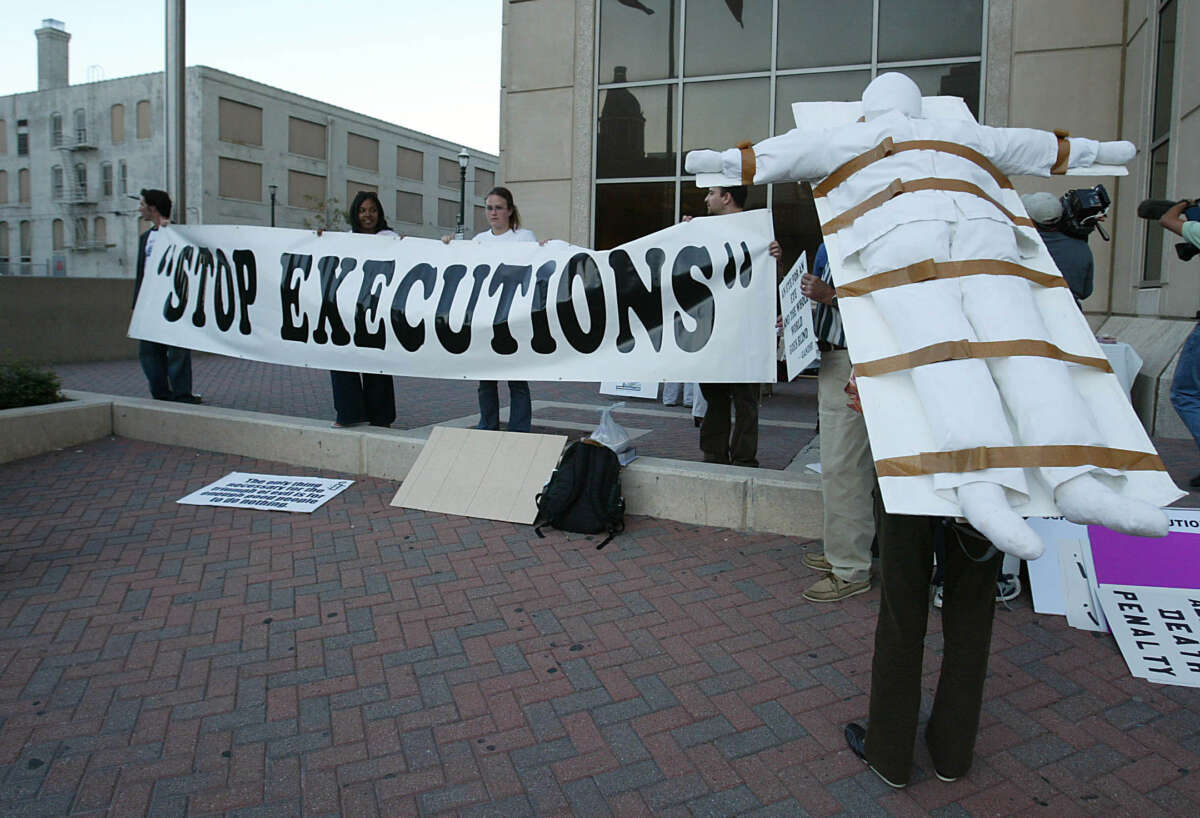Honest, paywall-free news is rare. Please support our boldly independent journalism with a donation of any size.
A new two–part report from the Wren Collective, an organization that seeks to “reimagine the way our country approaches criminal justice,” showcases how dozens of capital punishment convictions in Harris County, Texas, over the past two decades featured instances of court-appointed lawyers failing to provide adequate defenses for their clients.
These failures include neglecting to demonstrate important background on their clients’ lives that could have helped defendants during the punishment stage following conviction. The report also demonstrates that lawyers repeatedly failed to meet with their clients enough times to understand their situation or form a proper narrative to help them at trial.
The report from the Wren Collective — which is comprised of former public defenders — examined cases that resulted in death penalty judgments in Harris County over the past 20 years. The report didn’t review all such cases, excluding those in which post-conviction litigation hadn’t been filed at the time of the report’s review or that contained insufficient information.
Nevertheless, the examination of 28 such cases in the report is deeply alarming.
“Sixty years ago, in Gideon v. Wainwright, the Supreme Court issued a landmark ruling that would ultimately ensure every person facing the possibility of having their liberty stripped away would get an attorney if they could not afford one,” the report states. “Poor defendants in Harris County, Texas, do get free lawyers, but too many are denied effective ones, especially in death penalty cases where their lives hang in the balance.”
In the majority of the 28 cases that were examined, lawyers left out crucial details about their clients’ backgrounds. In 24 of those cases, the Wren Collective found that lawyers failed to present “compelling evidence of their clients mental illness or serious developmental impairments.” In 16 cases, lawyers failed to show past evidence of physical and/or sexual abuse. And in 23 cases, lawyers left out “evidence of serious parental neglect.”
Such evidence is crucial in the sentencing stage of a capital punishment case. After a guilty verdict is rendered, lawyers “present the client’s life history, which often includes trauma, abuse, and mental illness,” the report noted. “The lawyers then present the client’s life story to the jury to explain how the individual reached the point where they committed such a brutal crime. The lawyers hope that this evidence, known as ‘mitigation,’ will convince even one juror to spare the client’s life, leading to a life-without-parole sentence.”
Omitting the aforementioned information likely played a role in juries choosing capital punishment.
“The stakes of capital murder cases could not possibly be higher, and yet for decades, people have gone to death row with serious intellectual disability claims and lengthy histories of severe physical and sexual abuse,” Wren Collective founder Jessica Brand told HuffPost. “It is not because juries did not believe their stories — it’s because they never heard them.”
The report also found that some lawyers met with their clients only a handful of times. Of the 28 cases included in the report, jail logs were available for 21 cases; of those cases, 10 defendants had 10 or fewer visits from their attorneys, with court-appointed lawyers failing to visit four defendants altogether.
The report pointed out that the blame doesn’t fall solely on the lawyers, but also on the judges. Judges “seemingly ignore the excessive caseloads that many attorneys have, even though they are in charge of appointing lawyers to cases,” the report stated, noting that judges, who control who is appointed to which case, often create conflicts of interest by applying pressure on lawyers over how much money they spend defending their clients.
“If judges value quick resolution of cases over dedicated representation, a lawyer may feel, consciously or not, pressure to hurry the case along and ask for too little time and money, at the expense of the client,” the report stated, noting that the organization found “numerous examples of this happening.”
The report showcases just how overworked lawyers appointed to death row cases were. In 2022 alone, for example, 12 of the 40 lawyers paid to represent Harris County defendants who couldn’t hire their own attorneys had been given over 100 cases to work on, with six of those 12 being appointed to over 200 cases. One of those six lawyers was assigned nearly 500 cases.
The Wren Collective report also recognized the deep racial disparities within their findings, writing:
Like most aspects of the legal system, people of color suffered the most from poor representation in death penalty cases. Of the 28 cases we reviewed, 93% involved people of color. Seventeen are Black, eight are Latine, one is Arab, and two are white. All are men.
“It is clear that Harris County’s current system of death penalty representation is not working,” the report stated. “Lawyers receive inadequate training, have caseloads that are too high, and are accountable not just to their clients, but also to judges with an incentive to keep costs low and move their case calendars along.”
The Wren Collective report calls for institutional change in Harris County to restructure the entire system into one that “operates independently from judicial influence, either within or outside of the public defender.”
Minor tweaks will not fix the problem. The judges cannot control the appointments and cases, and Harris County must build a culture where lawyers, mitigation specialists, and experts are well-resourced and supported.
Media that fights fascism
Truthout is funded almost entirely by readers — that’s why we can speak truth to power and cut against the mainstream narrative. But independent journalists at Truthout face mounting political repression under Trump.
We rely on your support to survive McCarthyist censorship. Please make a tax-deductible one-time or monthly donation.
